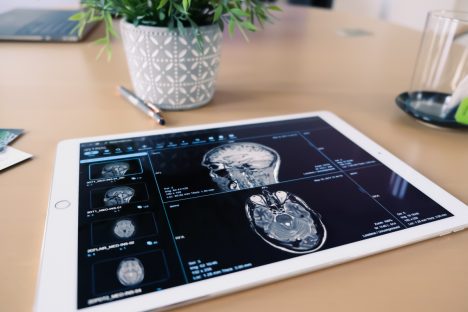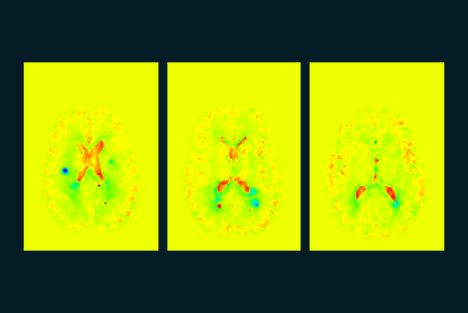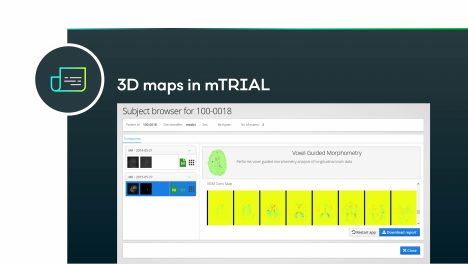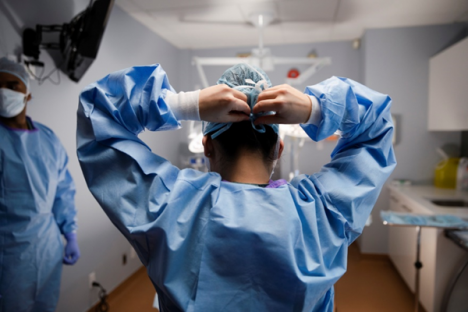Artificial intelligence
AI – When imaging thinks along
AI is changing the path of radiology services through a collection of algorithms and machine learning tools which support the medical professional. Cloud-based artificial intelligence works faster than any human radiologist, with the added capability to be in multiple places at the same time. In other words: artificial intelligence has the potential to improve medical care across the board for both patients and medical professionals. This can relieve doctors of repetitive, time-consuming tasks leaving more time for treating patients. In addition, AI brings particularly complex diagnostic processes into medical practices that were previously reserved for specialised departments.
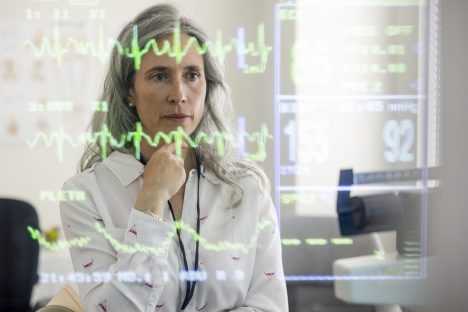
AI – When imaging thinks along
State of the art AI solutions for image and data analysis form the basis for our development in all areas of our IT products. Through active research, we ensure that we will continue to offer cutting edge solutions today and in the future. A selection of our research projects in the field of artificial intelligence:
ASPIRE: Alzheimer’s early detection using ASL (Arterial Spin Labelling)
KI4MS: AI-assisted detection of smouldering lesions for follow-up of MS
DEEPRAY: Automatic detection of aortic aneurysms
« Precise, individual diagnosis of dementia, even in smaller practices and clinics without a research background, is our vision. Artificial intelligence is predestined to support physicians in this work. »
COO

